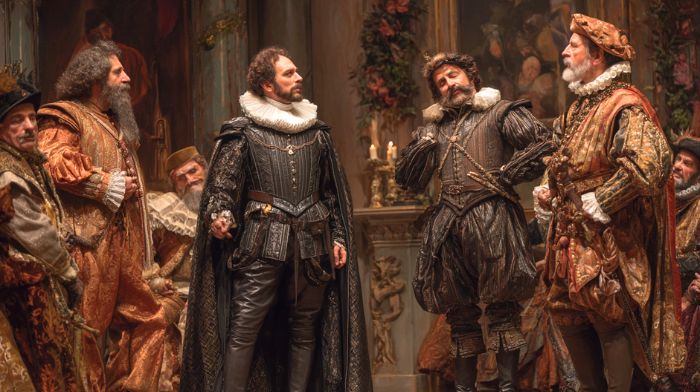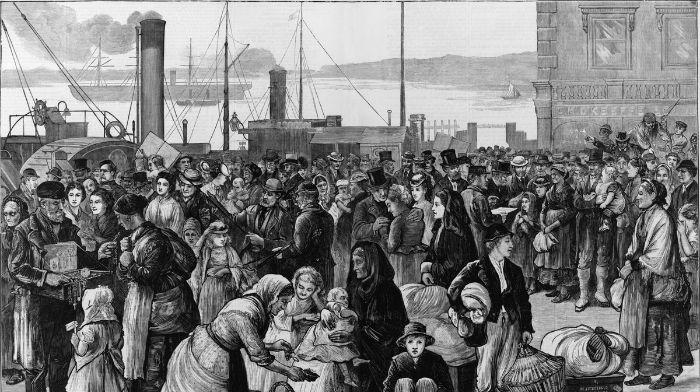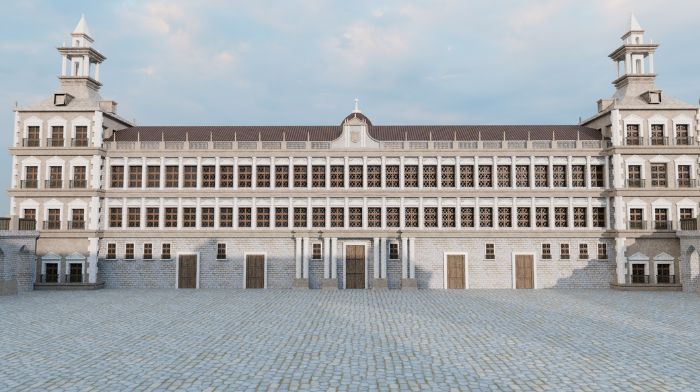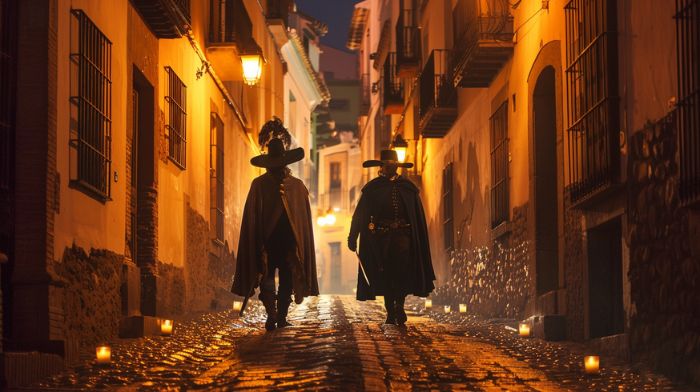Spain in Shakespeare's universe: more than a Castilian accent

What does Spain have to do with Shakespeare's universe?
When we think about Spain in Shakespeare's universeIt's easy to imagine that he doesn't have much of a role to play. After all, the Bard of Avon tells us about melancholic Danish kings, passionate Italian lovers, and enchanted forests populated by fairies. But what about Spain?
Did it have a place in Shakespeare's universe? Do our lands, our characters, or even our reputations appear in his works?
The short answer: yes.
The long answer: yes, but in more subtle, symbolic, or even comical ways than you might expect.
In this article, we explore how it sneaks in Spain in Shakespeare's universe, from exotic accents to imperial references, theatrical caricatures and unexpected literary connections.
"Spanish" as an exotic accent or comic relief
In several of his plays, Shakespeare uses foreign language as a comic element. Thus, accents, foreign words, and linguistic confusions become theatrical devices. In this context, Spain in Shakespeare's universe It appears as a touch of exoticism, arrogance or pedantry.
A clear example is found in The Merry Wives of Windsor (1597). In this comedy centered on the adventures of Sir John Falstaff, there is a character named Doctor Caius, who is French, and whose way of speaking is a constant source of jokes. In one scene, Falstaff mocks, saying:
“He speaks in Latin and Spanish too.”
Here, Spanish is mentioned as a cultured language… but also as one of those things that makes characters sound pretentious or ridiculous, especially in a small English town like Windsor.
These types of references show how Spain in Shakespeare's universe It is associated with the sophisticated, but also with the exaggerated.
Symbolic mentions: Castile and the imperial reputation
In Shakespeare's time, Spain was a superpowerUnder the Austrians, the Spanish Empire dominated much of Europe, America, and Asia. Its influence (and arrogance) did not go unnoticed.
Therefore, mentioning Castile or the Spanish in an English work was not neutral: it evoked power, wealth, pomp... and sometimes, arrogance.
In Much Ado About Nothing (1598), Benedick's character jokes about Claudius's proud behavior after falling in love:
“He hath the heart of a lion, and the tongue of a Castilian.”
“He has the heart of a lion and the tongue of a Castilian.”
Here, "Castilian" doesn't just mean speaking Spanish, but doing so with a haughty and elegant tone. In the 16th century, this had clear connotations: Spaniards were perceived as courteous, but also conceited and overly formal.
Another example of how Spain in Shakespeare's universe appears as a symbol of power… and ego.
Spaniards as symbolic antagonists: the shadow of the Empire
Although Shakespeare avoids direct references to the war between England and Spain (including the Spanish Armada of 1588), the political climate of the time subtly filters into his plays.
In Henry VFor example, there is a constant rivalry between languages and cultures: English, French, Latin... Spanish is not mentioned directly, but the tension between Catholic and Protestant European monarchies lies in the background.
Many scholars believe that characters such as Don Adriano de Armado in Love's Labour's Lost They are caricatures of the Spanish nobleman, with his grandiloquent way of speaking and his exaggerated romanticism.
Don Armado describes himself as "a fantastic soldier," and his speech is riddled with exaggerations and Latinisms. It is probably the clearest and most ridiculous Spanish in the entire Shakespearean canon.
A figure that represents how Spain in Shakespeare's universe It can be both an object of ridicule and an object of fascination.
And what about Don Quixote?
Although Shakespeare never directly adapted Cervantes, there is a curious indirect connection: in 1613, John Fletcher, an occasional collaborator of Shakespeare, wrote a play called The History of Cardenio, based on a subplot of Don Quixote.
There is debate about whether Shakespeare participated in its writing. The original play has been lost, but it was rediscovered and reconstructed centuries later as Double FalsehoodThe presence of Spanish characters and names like Cardenio either Luscinda suggests that the Spanish literary world was indeed on the radar of Elizabethan theatre.
Although brief and fragmentary, this link demonstrates that Spain in Shakespeare's universe It was not only a political or cultural reference, but also a literary one.
A Spain that Shakespeare never visited, but knew well
Although William Shakespeare never left England (as far as we know), his work is full of references to countries he never set foot in: Italy, France, Greece, Egypt... and also, occasionally, Spain.
His knowledge of Spanish geography was limited—like that of many English people of his time—but that did not stop him from using it as a symbol of something powerful, exotic, or excessive.
In a way, Spain in Shakespeare's universe It was like a mirror in which the English projected both admiration and rivalry.
The Spanish in the Elizabethan Imagination
In Shakespeare's plays, Spain appears as a rumor: sometimes pompous, sometimes romantic, sometimes ridiculous. But always recognizable.
There are no great Spanish characters in his tragedies, nor are there extensive references to real battles between nations. But there is an accent, a symbolic presence, and a constant cultural nod to that powerful nation that, in the Bard's day, was the eternal rival... and the source of countless theatrical fantasies.
What do scholars say?
Researchers such as Stephen Greenblatt, James Shapiro and Jonathan Bate They have analyzed how the political and cultural context of Elizabethan England influenced Shakespeare's work. And although Spain doesn't occupy a central place, its presence is constant in the background.
From the fear of the Inquisition to the fascination with American gold, Spain in Shakespeare's universe It is a shadow that is projected over many scenes, although it is not always explicitly named.
And how do we explore it in HistARy?
In History, we love to discover these hidden corners of history. That's why, on our self-guided tours through London, we take you to the places where Shakespeare lived, wrote and dreamed… including echoes of Spain in its theatrical universe.
From the Globe Theatre to the alleys where the Spanish Armada was discussed, every step is an opportunity to understand how theater reflects the politics, culture, and tensions of its time.
Want to discover more about Shakespeare?
Download your tour now at histary.es, with the quality guarantee of HL Comedy Tour.
Explore the past with future technology.
-
 Harry Potter in London: real locations where magic meets historyFebruary 26, 2026
Harry Potter in London: real locations where magic meets historyFebruary 26, 2026 -
 Chinese New Year 2026: History, Traditions and Meaning | HistARyFebruary 26, 2026
Chinese New Year 2026: History, Traditions and Meaning | HistARyFebruary 26, 2026 -
 The Earth has been round for 2,000 years: history proves it better than the internet.January 20, 2026
The Earth has been round for 2,000 years: history proves it better than the internet.January 20, 2026 -
 To return or not to return? The historical dilemma of diasporas (and what the current Venezuelan one teaches us)January 9, 2026
To return or not to return? The historical dilemma of diasporas (and what the current Venezuelan one teaches us)January 9, 2026 -
 Kings who died in the most absurd ways in historyDecember 29, 2025
Kings who died in the most absurd ways in historyDecember 29, 2025 -
 The fire at the Alcázar of Madrid: it changed the city forever: Was Philip V to blame?November 20, 2025
The fire at the Alcázar of Madrid: it changed the city forever: Was Philip V to blame?November 20, 2025 -
 Argentina: from world power to economic meme (and back again)November 12, 2025
Argentina: from world power to economic meme (and back again)November 12, 2025 -
 Calle del Codo and the duels in the Madrid of the Habsburgs: history, Quevedo, and secrets you'll discover on our tour.October 22, 2025
Calle del Codo and the duels in the Madrid of the Habsburgs: history, Quevedo, and secrets you'll discover on our tour.October 22, 2025 -
 Spain in Shakespeare's universe: more than a Castilian accentOctober 5, 2025
Spain in Shakespeare's universe: more than a Castilian accentOctober 5, 2025 -
 Why are self-guided AR tours the future of cultural tourism?September 14, 2025
Why are self-guided AR tours the future of cultural tourism?September 14, 2025









